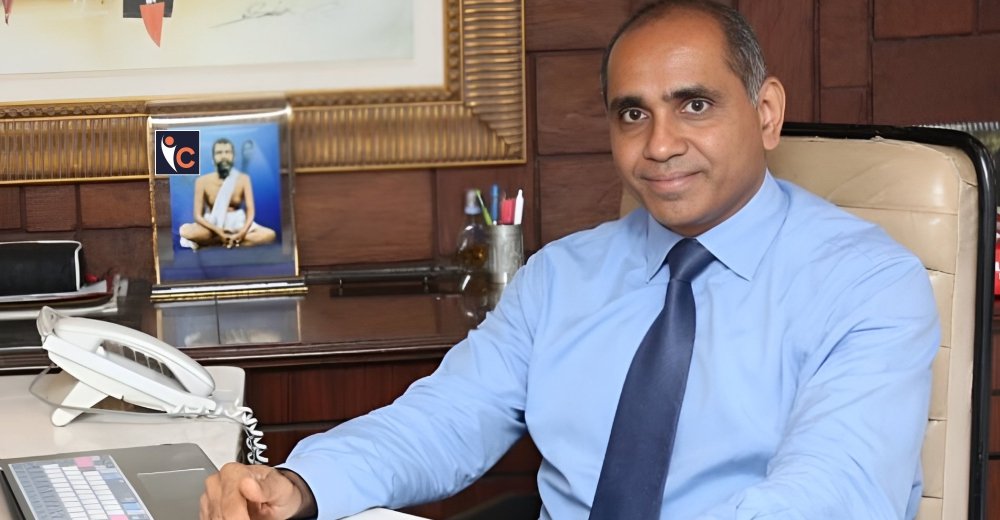Principles and Impact
Healthcare in India is evolving at a very rapid pace. There are increased patient expectations, increased costs, and new technology. Hospitals and clinics always struggle with these developments. But one thing is emerging in the limelight: ethical leadership. Ethical leadership is not just ruling obedience—it is decision-making that is fair, ethical, and patient-centric. In Indian healthcare, it is surfacing as a pillar for building trust, quality results, and guiding organizations through difficult topics.
Essentially, ethical leadership relies on a couple of straightforward principles. One of them is integrity. Leaders must be truthful in what they do and what they say. This means being transparent about treatment choices, costs, and potential risks. Employees and patients see leaders exhibiting integrity and build confidence. Trust in hospitals is not something that can be done without—it is something hospitals need. They are entrusting leaders with the decisions that are going to affect their health and well-being, and followers are seeking direction and inspiration from leaders.
The second is accountability. Ethical leaders hold themselves and others’ actions and choices accountable. In healthcare, mistakes will be made, but leaders who take responsibility for mistakes and then do something to correct it have a learning culture instead of fear. A publicly confessed medication mistake by a hospital executive and the subsequent establishment of additional safeguards, for example, is a perfect case in point. Accountability puts patient care first and causes mistakes to lead to improvement, not to accusations.
Compassion is also the key to ethical leadership. Healthcare is a people-serving business. Compassionate leaders who understand patients and employees give a culture where compassion and care become more important than profits and bureaucracy. Compassionate leadership can be a game-changer in India, where most patients come from marginalized communities. Empathy-led leaders make healthcare services patient-focused, dignified, and accessible.
The most impactful role of ethical leadership in Indian healthcare is the establishment of trust. Trust is squarely necessary among patients, doctors, and healthcare centers. Ethical leaders ensure proper information is imparted to patients, equal treatment is given, and respect is accorded to their rights. For example, during the pandemic of COVID-19, hospitals whose leaders publicly updated the public about the availability of treatments, protection, and vaccination benefits witnessed greater public trust. It is this faith that makes the patients seek early treatment, follow advice, and participate in preventive health care programs.
Ethical leadership is also crucial in motivating and implementing employees. Clinicians often work under challenging work with overtime and emotional requirements. Ethically behaving leaders—treating workers fairly, listening to complaints, and respecting effort—develop a positive working culture. Workers are likely to be motivated, work well, and engage in teamwork. Ethically led hospitals also have lower staff turnover and enhanced patient satisfaction.
Another notable area where ethical leadership makes a positive impact is in managing resources. Hospital overcrowding, bed shortage, and medicine and equipment shortages are some of the problems India is facing. Ethical leaders allocate resources economically and equally and don’t exhibit favoritism and corruption. For instance, in life-or-death situations, leaders who treat critical cases based on needs rather than power behave ethically while also ensuring patient safety. This neutrality supports healthcare organizations’ credibility.
Leaders who follow ethical principles also take care in using technology. With things like online consultations, digital health records, and AI tools, they make sure patient data stays private and is used correctly. They also make sure that technology supports care without widening disparities. This restraint makes sure everyone benefits from digital transformation and not just a privileged few.
The development of ethical leadership of Indian healthcare also impacts culture and policy. Leaders set the example of how clinics, hospitals, and even government programs operate. Placing ethics at the forefront of practices, policies on patient rights, safety, and the welfare of workers become more resilient. Ethical leaders are also models for others to emulate. This creates a culture over a span of time when fairness, compassion, and transparency are not desired—these are done.
Moral leadership is becoming an accepted part of Indian healthcare in a hurry. Integrity, accountability, and compassion are actions that are exhibited by leaders who build trust, engage employees, make best use of resources, and use technology judiciously. Such behaviors have a positive effect on individual patients but also the healthcare system. As more modernization of the healthcare facilities of India unfolds, institutional ethics of moral leadership will be required to steer institutions through the challenges, improve patient care, and establish a health system that is equitable, effective, and known.
Ethical leadership is a mindset, not a checklist. It guides choices, inspires teams, and keeps healthcare centered on patients. In India’s evolving healthcare system, ethical leaders are driving lasting, positive change for everyone involved.





